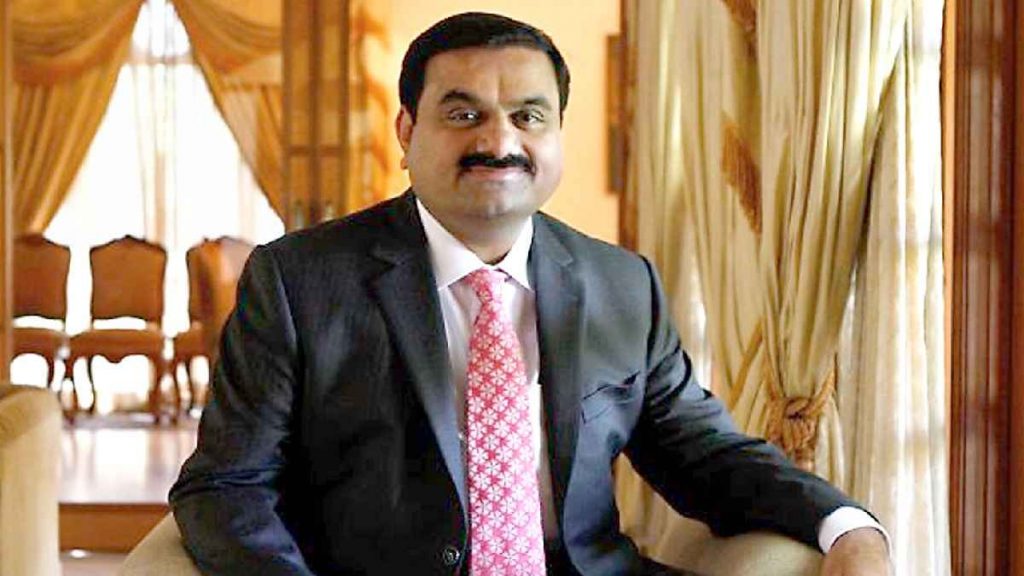There’s no stopping Gautam Adani’s march to the topmost echelons of the world’s rich lists.
Gautam Adani has become the third richest man in the world after a surge in the stock prices of his listed companies. Adani went past France’s Bernard Arnault, who is the founder of luxury goods company Louis Vuitton. This makes Adani the first man from Asia to ever break into the top three in the global rich list.

As per the Bloomberg Billionaires’ Index, Adani currently has a net worth of $137 billion, putting him just ahead of Arnault who’s worth $136 billion. Elon Musk continues to be the richest man in the world with a net worth of $251 billion, and is followed by Amazon founder Jeff Bezos who has a net worth of $153 billion. India’s Mukesh Ambani has dropped out of the top 10 to number 11, and currently has a net worth of $92 billion.
Adani’s rise in the rich lists has been nothing short of meteoric, thanks mainly to Adani’s listed stocks having zoomed over the last couple of years. Three Adani Group companies have delivered multi-bagger returns so far in 2022 — Adani Wilmar has doubled from its issue price, whereas Adani Power has zoomed 170 per cent. Adani Green Energy has also gained 80 per cent. Other companies from his group are up by 17-55 per cent in the current year. Adani’s net worth has risen from $50.5 billion in 2021 to $137 billion now.
But Adani hasn’t just had a couple of extraordinary years — his life-story is stuff of what entrepreneurial dreams are made of. Gautam Adani was born in 1962 in a Jain family in Ahmedabad, Gujarat. His father, Shantilal Adani, was a small textile merchant, and Gautam had seven other siblings. While he was a teenager, he had moved to Mumbai to work as a diamond sorter for Mahendra Brothers. He’d then followed a path that’s familiar to many global billionaires, including Bill Gates and Mark Zuckerberg — he had dropped out of college. Adani had enrolled for a Bachelor’s degree in Commerce at Gujarat University, but left after his second year to work on a business venture.
When Adani was 19, his elder brother Mahasukhbhai Adani bought a plastics unit in Ahmedabad, and invited him to manage the operations. This venture turned out to be Adani’s gateway to global trading through polyvinyl chloride (PVC) imports. In 1985, he started importing primary polymers for small-scale industries. In 1988, Adani established Adani Exports, now known as Adani Enterprises – the holding company of the Adani Group. Originally, the company dealt in agricultural and power commodities.
As India opened up its economy in 1991, the opportunities for Adani grew. In 1994, the Government of Gujarat announced managerial outsourcing of the Mundra Port and in 1995, Adani got the contract. In 1996, the power business arm of the Adani Group, Adani Power, was founded. Adani also manages the Mumbai airport, which is the second-largest in India in terms of annual passengers.
Adani’s companies are now massive behemoths. Mundra Port is the largest private sector port in India, with the capacity of handling close to 210 million tons of cargo per annum. Adani Power holds thermal power plants with a capacity of 4620MW, which is the largest private thermal power producer of the country. In May 2020, Adani also won the world’s largest solar bid by the Solar Energy Corporation of India (SECI), which was worth US$6 billion.
Adani has now become the first man in Asia to be counted amongst the top three richest people in the world. It’s a momentous achievement, and made even more impressive by the fact that Adani is a first generation entrepreneur from a relatively poor country. It remains to be seen how the Adani Group fares over the next few years, but his entry into the global top three signals a shift in global power — with a first-generation entrepreneur from India managing to break through the worldwide rich lists, he could pave the way for many more Asians generate tremendous wealth, both for themselves and their respective countries, in the decades to come.